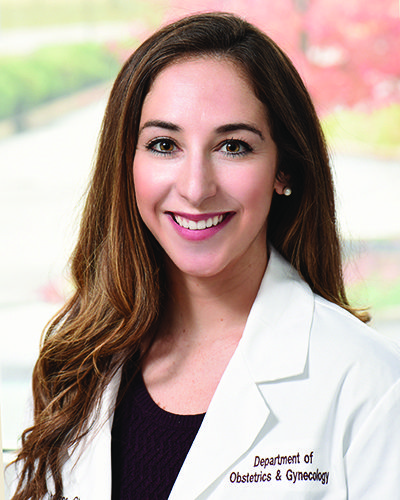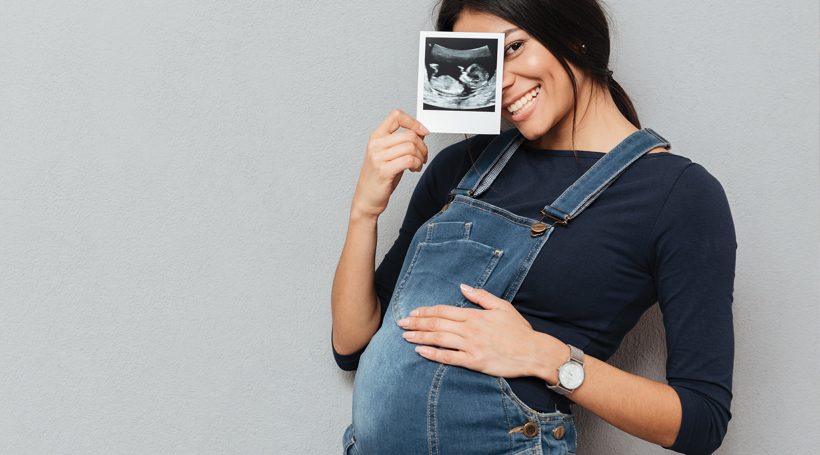Moms often have that dramatic story they like to tell about their baby’s birth or the 9 months leading up to that special day. (Just ask women who delivered during the Blizzard of ’96 or Hurricane Sandy, and you’ll get an earful.) Kids born in 2020 will likely be reminded time and again how they arrived in the year everything changed. The stories may get more dramatic over time, but here’s what you need to know if you’re going through it now.
High risk pregnancy, high-risk times
Expecting a baby in the midst of the Covid crisis is nerve-wracking enough, but when that pregnancy is also high risk, the stakes are even higher.
“Pregnant women are already immunocompromised, so they need to be on special alert when it comes to safety in the pandemic,” says Ken Covone, DO, chief of OB/GYN at Jefferson Health – NJ. “But for high-risk pregnancies, like in cases where women are also being treated for diabetes or hypertension, treatment became a question of: is their condition more of a concern or is Covid?”

Ken Covone, DO
To limit exposure, many routine prenatal check-ups are now conducted virtually, says Covone. Doctors provide their patients with specialized equipment, such as blood pressure cuffs and scales, as well as training so they can successfully monitor themselves at home.
For office visits, doctors now allow patients to bring along one support person who is screened for Covid before each visit, and they strongly encourage bringing the same person each time.
And while Covid-19 safety restrictions have loosened to allow bigger gatherings and limited-capacity indoor dining, doctors are still encouraging pregnant women to maintain strict social distancing. Because their condition makes them more vulnerable to contracting the disease, Covone says, he suggests pregnant women avoid crowds and other gatherings whenever possible. But, he says, he never recommends strict quarantine for Covid-free patients.
“Otherwise, we are trying to keep things as normal as possible for our patients,” says Covone. “Their health and safety is our first priority, but we want to make sure they have time to enjoy and feel comfortable with their pregnancy as well. This is a special time for expectant mothers, and we don’t want to take that away from them.”
Call the midwife
With people spending more time at home, more women want to give birth in the comfort and relative safety of their own home, says Katherine Wormser, a nurse-midwife at Rowan Medicine.
“In the early days of the pandemic, parents were scared of delivering in the hospital,” says Wormser. “Hospitals have taken great strides to ensure that there is nothing to worry about safety wise, but it did open a new way of thinking about giving birth in another setting.”

Katherine Wormser
Midwifery, Wormser says, is one of the world’s oldest professions – women with specialized training have been safeguarding the health of mothers and babies during home births (known then simply as births) for hundreds of years. Nowadays, it’s a specialized profession and many midwives are licensed to administer medications and monitor the baby before and after birth.
“Midwives have a specified care model that is ideal for a home birth,” she says. “It’s trusting a woman’s body, but being prepared in case something does go wrong. A lot of women are finding comfort in that right now, especially at a time when health and science are being turned on their heads.”
While some people may be wary of home births, it was the norm until the early 1900s. For women with a high-risk pregnancy or delivery complications like a breech birth, home birth may not be the ideal option. However, many women are capable of delivering successfully at home without complications, Wormser says.
“It’s about judging your own health and preferences to come up with a birth plan that makes sense for you,” she says. “Childbirth is one of the most natural things in the world, and midwives embrace that mentality.”
A pandemic generation of doctors
Just as the healthcare experience has shifted for patients, it’s shifted for doctors as well. Kathleen Schaeffer, DO, program director of the OB/GYN residency program at Cooper University Health Care, says the pandemic is a defining moment for the medical students she oversees. It will likely shape the way they practice throughout their careers.

Kathleen Schaeffer, DO
“It’s always been important to form a trusting relationship with our patients,” says Schaeffer. “For pregnant women, they not only have to worry about their own health, but the health of their child as well, and the fear of contracting Covid is one more added layer for patients.”
Doctors have had to shift the way they interact with patients. With Covid-19 precautions like mandatory masks, even something as simple as making sure their name tags are visible at all times can help women feel more comfortable when they can’t see the faces of their healthcare team. But this complication may just lead to a generation of more empathetic, more compassionate doctors who are more flexible to meet the moment and future challenges, says Schaeffer.
“For many doctors who have been practicing for decades, switching to telehealth was an adjustment,” she says. “We had to figure out how to take vitals at home or form a connection through a computer screen. For the doctors being trained now, this is going to be a part of their everyday practice.”
Schaeffer has already seen the way residents are more at ease with telehealth visits and figuring out how to make patients feel comfortable in a virtual setting.
“Healthcare evolves every day,” she says. “This has given us the opportunity to teach healthcare providers how to face challenges and come out the other end as better doctors for their patients.”














